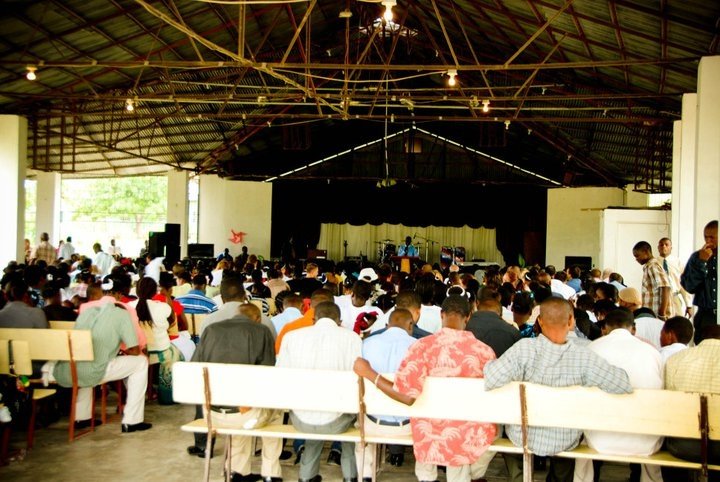The Great Commission given by our Lord Jesus Christ is a global mandate—it covers the cities, towns, nations, and rural communities. When Jesus said, “Go ye into all the world and preach the gospel to every creature” (Mark 16:15), He included the villages and remote places.

Dr. C. Peter Wagner once stated that church planting remains the most effective strategy for fulfilling the Great Commission. Sadly, today, while cities are filled with churches—some even overcrowded—many villages remain unreached. Some have churches that are either dying or declining. This teaching is meant to stir up a fresh burden in us to plant churches in rural settings and remote areas.
BIBLICAL FOUNDATION
“And Saul was consenting unto his death. And at that time there was a great persecution against the church which was at Jerusalem; and they were all scattered abroad throughout the regions of Judaea and Samaria, except the apostles… Therefore they that were scattered abroad went everywhere preaching the word. Then Philip went down to the city of Samaria, and preached Christ unto them… And there was great joy in that city…” — Acts 8:1, 4-11 (KJV)
When persecution hit the early Church in Jerusalem, believers were scattered, and that scattering became an opportunity for church expansion. Philip took the gospel to Samaria, a region beyond Jerusalem, and revival broke out.
WHY WE MUST PLANT CHURCHES IN VILLAGES
- God does not desire that anyone should perish—including villagers (2 Peter 3:9).
- Jesus is not a local Savior—He is the Savior of the world.
- The gospel must be preached everywhere before the return of Christ (Matthew 24:14).
- To set rural dwellers free from demonic oppressions and witchcraft that dominate many villages.
- To provide a spiritual home and discipleship platform for the unsaved in rural areas.
CHALLENGES HINDERING EFFECTIVE RURAL CHURCH PLANTING
1. ENVIRONMENTAL OR COMMUNITY FACTORS
- Economic limitations: Most villagers are subsistence farmers or fishermen with very little disposable income.
- Low literacy levels: Many are illiterate, which affects how they receive and understand the gospel.
- Traditional beliefs: Deep-rooted idol worship, ancestral rites, and fetish practices hinder gospel penetration.
- Ethnic unity and clan systems: Strong community ties may resist outsiders or non-natives.
- Language barriers: Evangelists may not speak the native dialects.
- Seasonal patterns: Many rural folks migrate seasonally for farming or trading, affecting follow-up.
- Infrastructural underdevelopment: Villages often lack basic amenities like clean water, electricity, and medical care.
2. CHURCH OR DENOMINATIONAL FACTORS
At the national or regional church level:
- Urban-centered leadership: Denominational leaders tend to reside in cities and neglect rural areas.
- Talent drain: The best pastors are drawn to urban churches with better pay and prestige.
- Lack of rural vision: There’s little strategic focus on reaching villages.
- No clear rural planting policy: Many denominations lack defined blueprints for rural missions.
- Lack of rural-focused specialists: No dedicated missionaries trained for rural work.
- Urban methods applied in rural contexts: Many churches try to replicate city strategies in villages, which often fail.
- Wrong priorities: The focus is often on building projects and finances rather than people’s spiritual and physical needs.
- Absence of indigenous church models: Most church models depend on external pastors and city structures instead of empowering local believers.
At the local church level:
- Self-centered leadership: Pastors and members often focus only on their needs and projects.
- No burden for the unreached: Many believers and church leaders have no heart for missions in rural areas.
- Cultural insensitivity: They fail to start with the people’s realities—economic, educational, and spiritual.
- Ineffective evangelism methods: One-time crusades with no follow-up are common, instead of using ongoing, indigenous, small-group based methods.
- Overdependence on buildings and pastors: Trying to replicate urban church structures in villages often leads to failure.
- Failure to equip local believers: Church planting efforts should train and release local members for ministry.
Recommended Reading
Planting A House Fellowship Church
Healthy And Happy Marriages In The Body Of Christ
The Benefits of Hearing the Voice of God
20 Practicable Ideas For A Successful marriage
KINGDOM PRINCIPLES FOR EFFECTIVE VILLAGE CHURCH PLANTING
- Begin with the people—not just a program.
Understand their environment: economic situation, education level, religious practices, clan systems, and daily lifestyle. - Develop a context-sensitive strategy.
The mission must begin with the villagers’ “felt needs.” Meet them where they are so you can lead them to Christ. - Engage in holistic ministry.
In rural places, the church must care for both spiritual needs and physical/social needs (like healing, deliverance, clean water, food, education). Signs and wonders are vital in confronting traditional powers. - Communicate in their heart language.
Learn their local dialects and speak in a way that connects. - Raise indigenous churches.
Plant churches by the people, for the people, and with the people—not just imported models. - Aim for reproduction.
Like Paul told Timothy to train others who can teach others also (2 Timothy 2:2), use simple, transferable church planting methods that locals can repeat in neighboring communities. - Understand that villages are different.
Don’t copy city methods. Village churches must follow a unique approach—simple, sustainable, and Spirit-led.
FINAL WORD
Beloved, God is calling us to the harvest fields of the villages. The gospel is not just for the educated, wealthy, or urban dwellers. Jesus died for everyone. Let us arise and take His name where no church exists. Let the fire of missions burn afresh in our hearts, and let us equip the rural saints to stand strong and shine bright in their communities.
“The harvest truly is plenteous, but the labourers are few; pray ye therefore the Lord of the harvest, that He will send forth labourers into His harvest.” —Matthew 9:37–38
